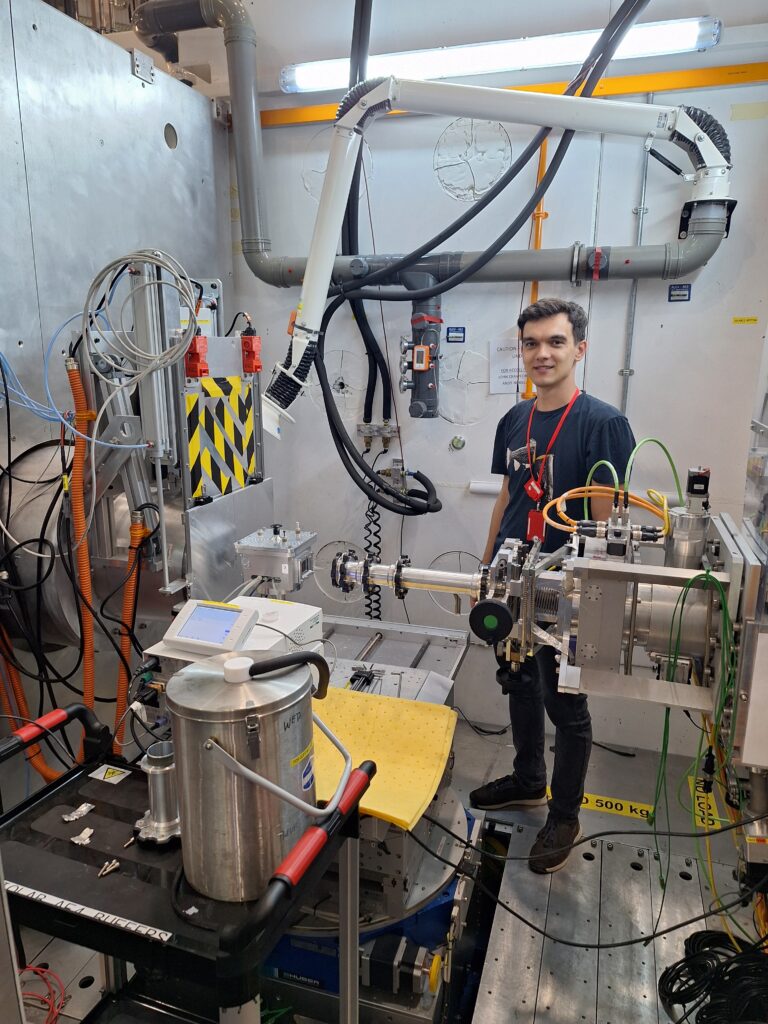In May 2025, Marcin Piwowarczyk from the Henryk Niewodniczański Institute of Nuclear Physics, Polish Academy of Sciences, took part in an advanced neutron scattering experiment at the ISIS Neutron and Muon Source in the UK. His visit was organized through the NEPHEWS Twinning Programme, which connects researchers with leading large-scale research facilities.
As a member of a collaborative team, Mr. Piwowarczyk contributed to small-angle neutron scattering (SANS) measurements using the ZOOM instrument at ISIS/RAL.
“The SANS technique allowed us to obtain detailed information about the ordering of liquid-crystalline materials confined within nanometer-sized pores of anodic aluminium oxide (AAO) membranes. The experiment provided important structural insights that are valuable for both soft matter theory and practical applications of certain liquid crystals in displays and sensors.”, said Mr. Piwowarczyk.

The research was led by Principal Investigator Dr Oleksandr Tomchuk. Mr. Piwowarczyk highlighted the collaborative spirit and support received throughout the project:
“I would like to express my sincere gratitude to Dr Oleksandr Tomchuk, to all the instrumental scientists for their continuous support during the measurements, and to the coordinators of the NEPHEWS Twinning Programme for leading this valuable initiative.”
The NEPHEWS Twinning Programme provides hands-on training and fosters international collaboration among early-career researchers by enabling access to large-scale facilities like ISIS. It strengthens both scientific skills and international networks.
Reflecting on the experience, Mr. Piwowarczyk noted:
“This visit was a unique and relevant opportunity to familiarise myself with the capabilities of large-scale research infrastructure and the methodology for conducting advanced neutron scattering experiments.”
Through his participation, Mr. Piwowarczyk gained invaluable insights, contributed to high-impact research, and demonstrated how twinning programmes can drive personal growth in science.